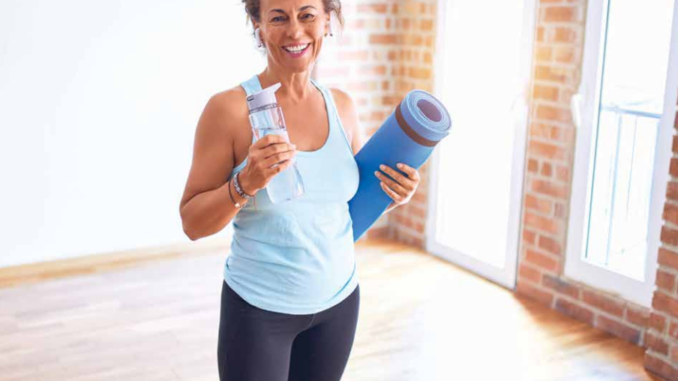
Water is essential for proper body function. Seniors are especially prone to dehydration because appetite and thirst diminish as we age.
Even when your body needs more to drink, you may not know it. Your body composition may have changed over time, leaving you with less water in your body than you once had. Lastly, seniors are more likely to take medications that increase the risk of dehydration.
HOW MUCH WATER DO YOU NEED?
You should drink one-third of your body weight in fluid ounces, the National Council on Aging says. This means if you weigh 150 pounds, you should drink 50 ounces of water per day. Talk to your doctor or other medical professional about how much you should drink.
Medical conditions and medications, including over-the-counter medications, could affect how much water you need. Many seniors take medications that can increase the risk of dehydration. It’s important to be aware of this and take the necessary steps to ensure you’re getting enough fluids throughout the day.
Try to build hydration into your daily routine so that it becomes a habit. Take little sips of water throughout the day. If you can’t stomach water, switch it up by infusing your water with sliced fruit or juices, provided you’re not diabetic. Even if you are, talk to your medical professional about safer ways to stay hydrated.
SYMPTOMS OF DEHYDRATION
Even a mild case of dehydration can lead to uncomfortable symptoms. One sign is less frequent urination and, when you do go, producing a dark-colored or smelly urine. You may feel tired or weak, be more irritable than usual, or experience dizziness and headaches.
You could also have a dry mouth, muscle cramps or confusion. Dehydration symptoms can easily lead to falls and more serious injuries, so pay attention to the early symptoms.
STAYING HYDRATED
Keep water with you all the time. Today, there are a variety of refillable bottles available and filling stations are frequently built into public places. If you have trouble drinking fluids, include water-rich foods in your diet such as cucumbers, watermelon, lettuce, tomatoes and celery.
You can include foods such as soups and broths, provided you monitor your salt intake. Avoid caffeinated beverages such as tea and coffee. Caffeine is a diuretic, meaning you’ll pee more and lose fluids your body needs to stay healthy.